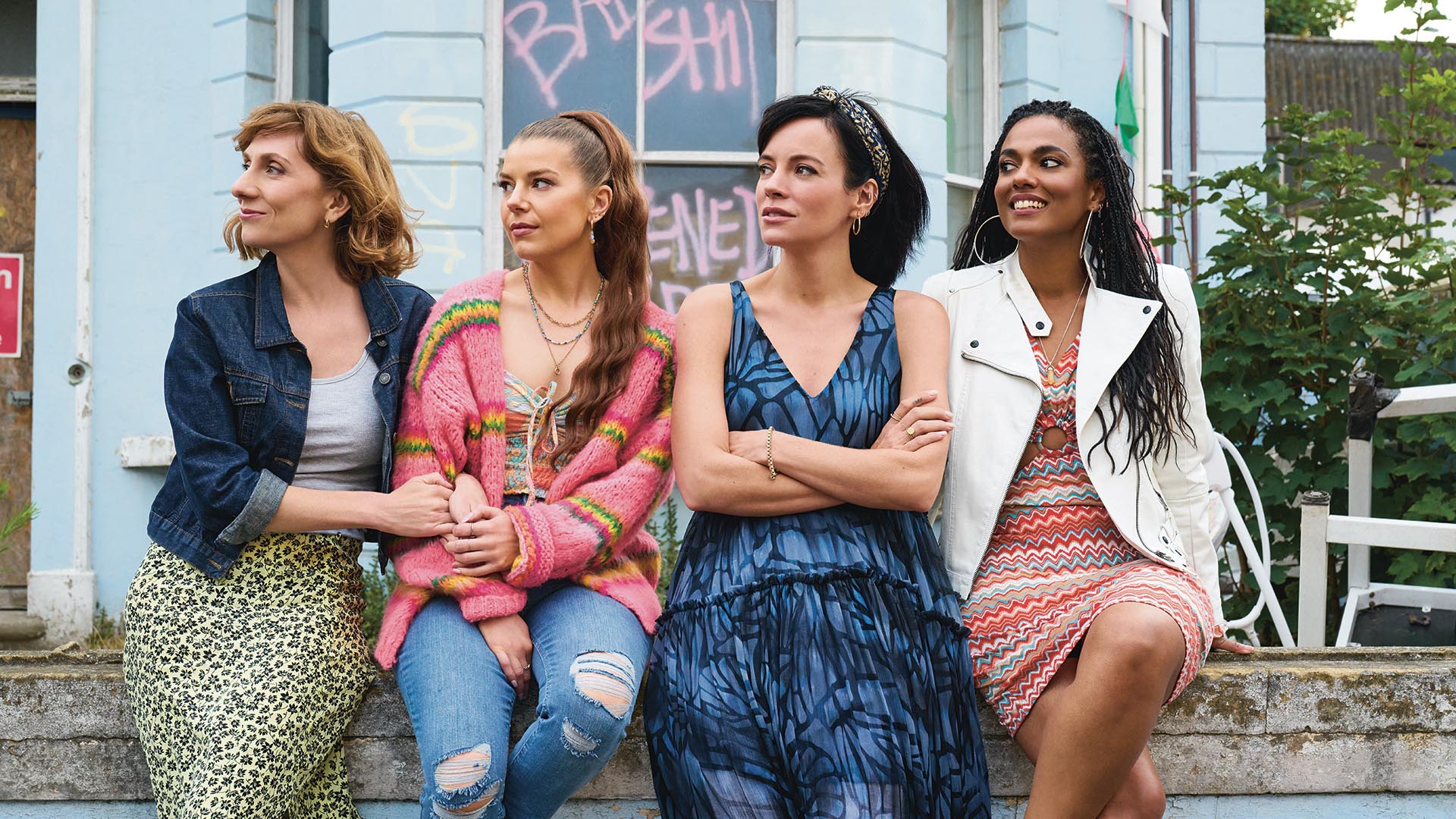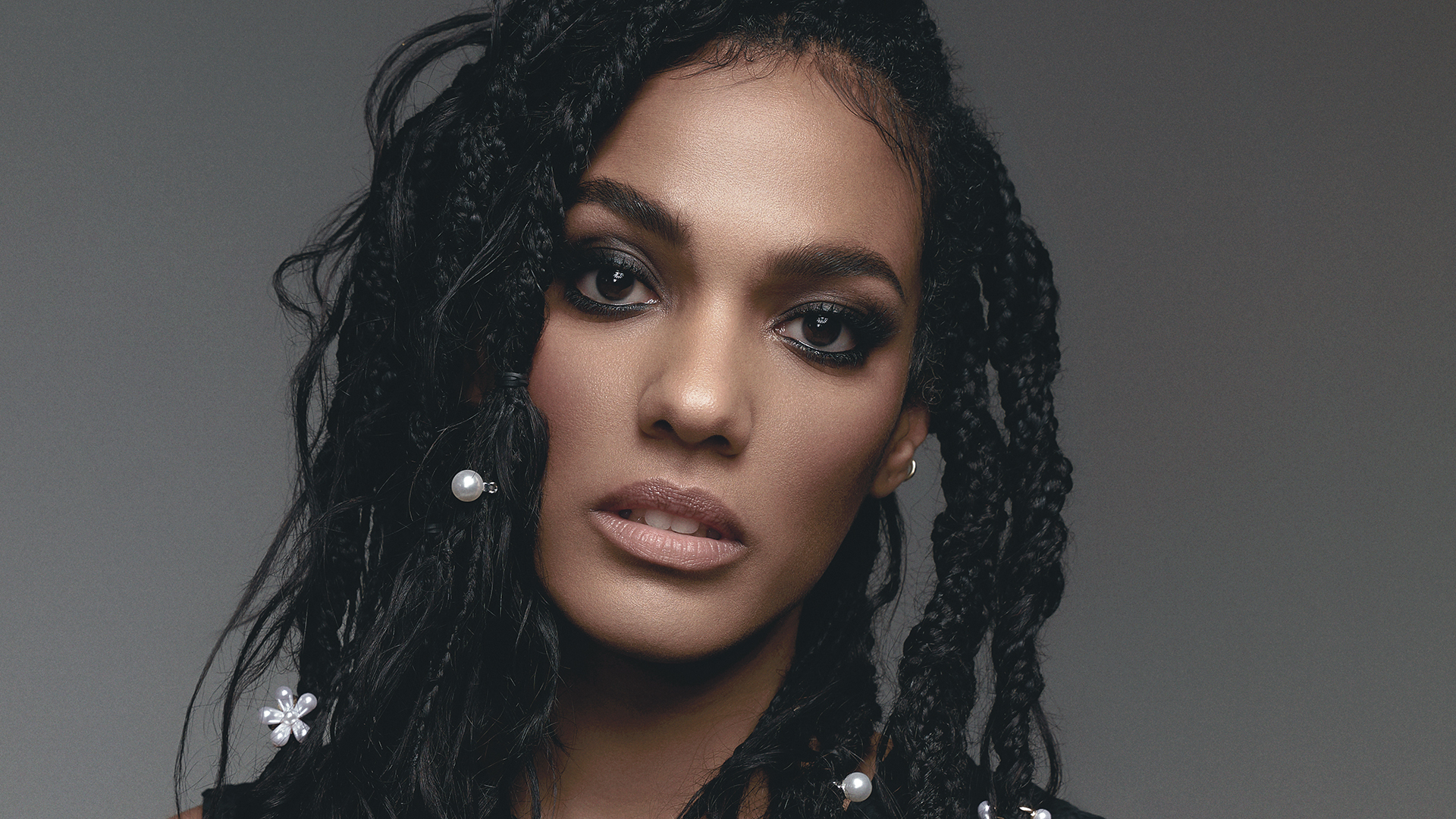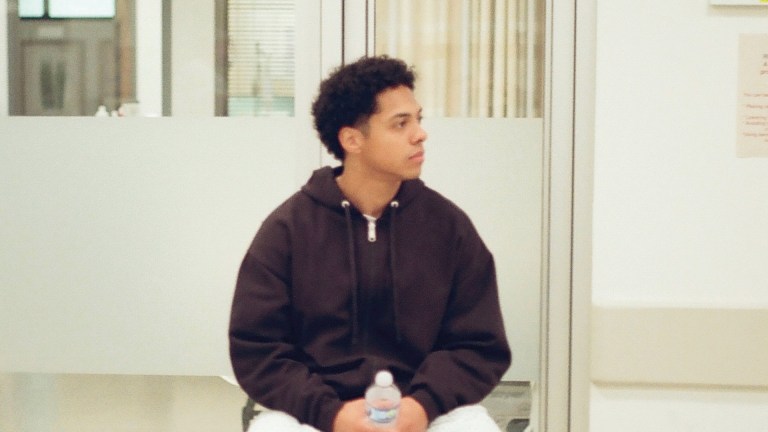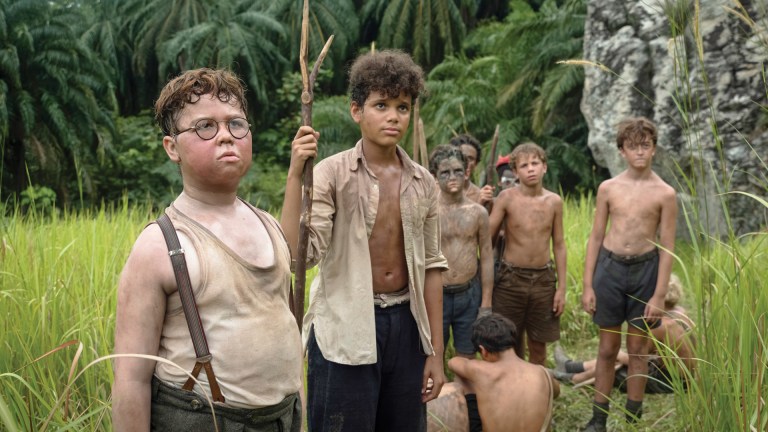Freema Agyeman is in Dreamland. Literally and figuratively. The actor, who first found fame as Martha Jones in Doctor Who and has more recently starred in cult hit US series Sense8 and medical drama New Amsterdam, is back working in the UK. And her latest series, a sparky comedy set in Margate, reminds her of her youth.
Sure, she didn’t grow up in Margate. But she did grow up in a similar situation to the family at the heart of Dreamland – in which Agyeman stars alongside Lily Allen, Aimee-Ffion Edwards and Gabby Best as sisters struggling to be heard. The depiction of working-class women and familial relations on display were fully familiar.
Agyeman plays Trish – intense, driven and desperate that her third child with Spence (Ghosts star Kiell Smith-Bynoe) will be a girl. Her sister Clare is a local journalist, Leila (Edwards) is working the bins, while prodigal sister Mel (Allen, in her debut acting role) returns from Paris to rupture the chaotic happiness in Margate, with the sisters, Nan (Sheila Reid) and their mum (Frances Barber) and her girlfriend (Martina Laird).

“When I watched it, I immediately wanted to watch it again,” says Agyeman. “Which is always a good sign. I wanted to hang out with these people – they live, they breathe, their relationships and their lives feel real. I think the writing is sublime.”
Your support changes lives. Find out how you can help us help more people by signing up for a subscription
Dreamland is written by showrunner Emma Jane Unsworth, Gabby Best, Sharma Walfall and Sarah Kendall, directed by Ellie Heydon and produced by Sharon Horgan’s Merman team.









